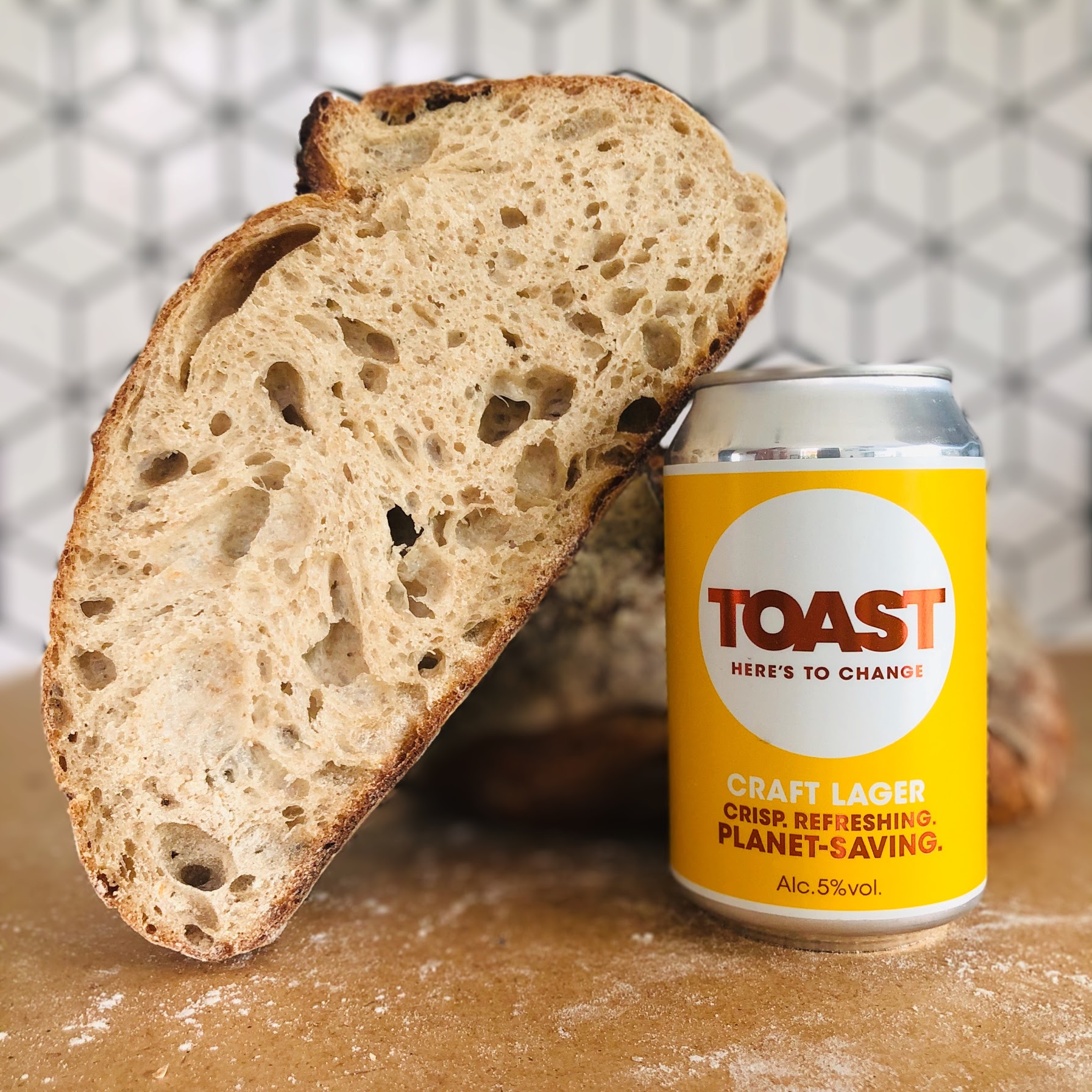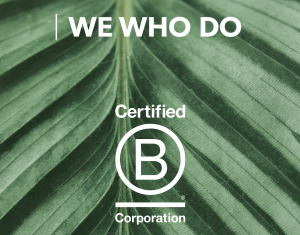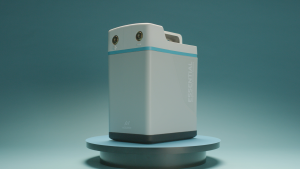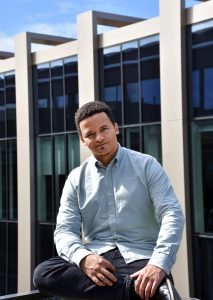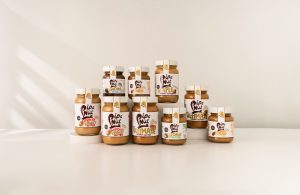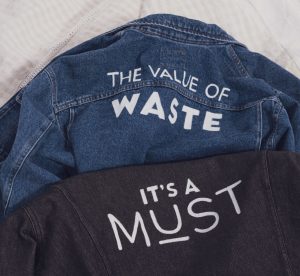Where did the idea for Toast come from?
Louisa: As an author and campaigner on the environmental and social impacts of food production, the idea for Toast was initially sparked in Tristram Stuart in 2015. After meeting the people behind the Brussels Beer Project, who were already using fermented bread and historic brewing techniques in their ‘Babylone’ beer, Tristram saw an opportunity for a global proposition to reduce food waste. Together we set up Toast and brewed our first batch with Hackney Brewery, formally launching our beer in 2016.
To make our beer, we use surplus fresh bread to replace one-third of the malted barley in our grain bill. Bread is packed with carbohydrates, which are broken down to simple sugars by enzymes (Amylase) in the barley. Hops are added for aroma and bitterness, and to help preserve the beer, then yeast converts the sugars to alcohol during fermentation.

How is Toast Ale sustainable?
Louisa: Bread is one of the most wasted food items in the UK, with up to 44% never eaten. We waste lots in our homes –about 24 million slices of bread every day – because we buy too much. We also have an expectation of fresh bread every day so huge amounts are wasted in the supply chain, and that is where we come in.
Sandwich factories usually discard the loaf heels that aren’t used to make sandwiches. So we use this surplus bread, working with large bakeries in the UK. For our global collaborations, we use surplus bread from local bakeries. Unfortunately, reducing waste it is not as simple as baking less bread – bakeries overproduce to ensure they can meet demand (which is as unpredictable as the weather). Supermarkets want fully stocked shelves and replace edible bread on a daily basis. Using surplus bread means we can’t reduce demand for virgin barley, which is a huge part of beer’s environmental footprint due to the energy, land and water demands for growing and malting the product.
We’re also a social enterprise, with all our profits going to charities rather than shareholders, and a Certified B Corp.
Also – all our award-winning beers are vegan too as we do not use any animal products!
Where do you see Toast Ale in 5 years time?
Louisa: Our general ambition is to see the entire brewing industry using surplus bread in their grain bill so that we can eliminate bread waste. Since launching in 2016, we’ve collaborated with over 50 breweries directly and inspired many others. Now we’re working on projects to incentivise and make it easier for breweries to do this by removing barriers such as sourcing surplus at the time and quantity required.
How have Toast had to adapt over the past few months?

Louisa: The past few months have been really challenging – prior to lockdown our main customers were pubs, bars, diners, restaurants, theatres and events. We pivoted to improve our online shop and focus on e-commerce, which has been fantastic, though not sufficient to replace the sales we lost.
As a result we had to put most of the team on furlough, though they were able to use their time to volunteer with our partner charities getting food to people in need. It’s going to continue to be a challenging time through the rest of the year, for the entire industry, but we are optimistic moving forward.
This article has been posted as part of the Sustainable Start-up Series run by WeWhoDo: building a community of world-leading experts to help sustainable businesses thrive. For more information about Toast Ale, check out their site here: https://www.toastale.com/our-beers

